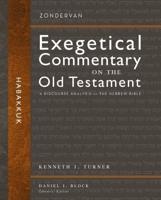Publisher's Synopsis
Excerpt from The Expositor, Vol. 6
On the perishableness of earthly riches the agreement is not quite so close; still there is much more similarity between James' Go to now, ye rich, weep and bowl for your miseries which are coming upon you: your riches are corrupted and your garments are moth-eaten; your silver and your gold are rusted, and their rust shall be for a testimony against you, and shall eat your ?esh as fire: ye have laid up your treasure in the last days - there is, I say, much more similarity between this and Matthew's Lay not up for yourselves treasures upon earth, where moth and rust doth corrupt, than there is between either of these and the passage from Enoch xcvn. 8-10 referred to by Spittaz' Woe to you who acquire silver and gold in unrighteousness, yet say, We have increased in riches; we have possessions, and we have acquired everything we desire. And now let us do that which we purpose; for we have gathered silver, and our granaries are full, and plentiful as water are the husbandmen in our houses. And like water your lies will ?ow away; for riches will not abide with you, but will ascend suddenly from you for ye have acquired it all in unrighteousness, and ye will be given over to a great condemnation.
It is, I think, unnecessary to go further. In almost every instance in which Spitta attempts to explain away parallels between our Epistle and the Gospels, which have been pointed out by commentators, his efforts seem to me to be scarcely less abortive than in the cases I have-ex amined. The authenticity of the Epistle remains in my14 st. John's paradox concerning the dead.
About the Publisher
Forgotten Books publishes hundreds of thousands of rare and classic books. Find more at www.forgottenbooks.com
This book is a reproduction of an important historical work. Forgotten Books uses state-of-the-art technology to digitally reconstruct the work, preserving the original format whilst repairing imperfections present in the aged copy. In rare cases, an imperfection in the original, such as a blemish or missing page, may be replicated in our edition. We do, however, repair the vast majority of imperfections successfully; any imperfections that remain are intentionally left to preserve the state of such historical works.










